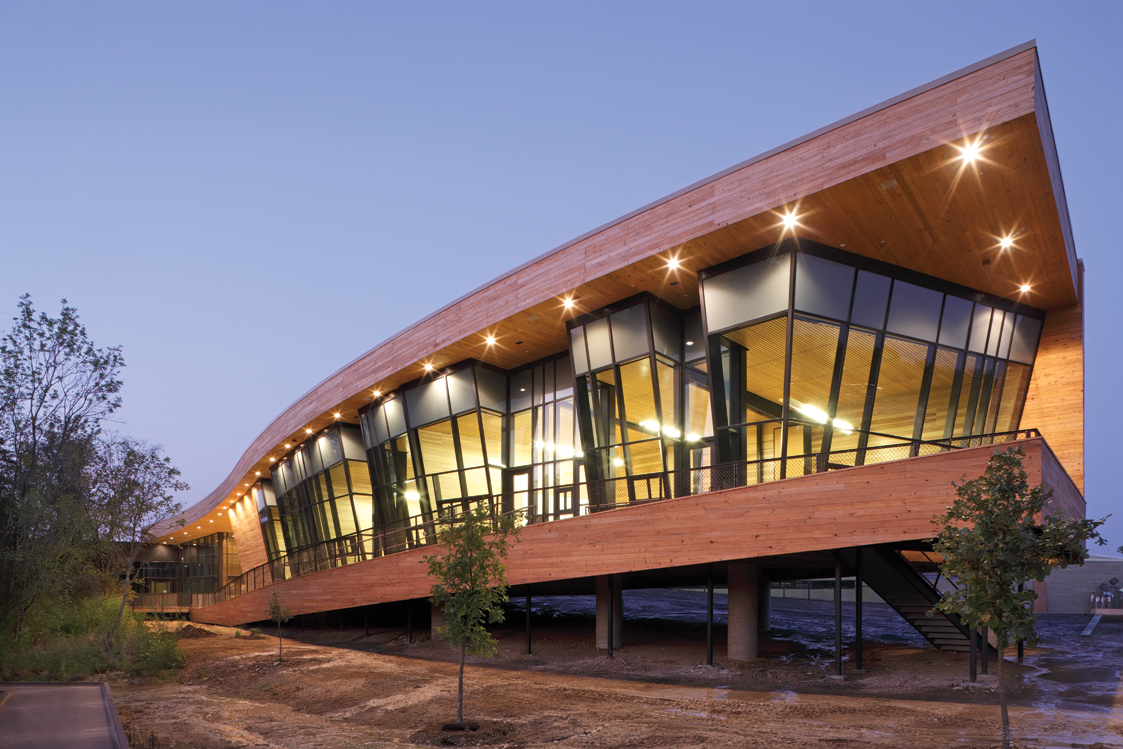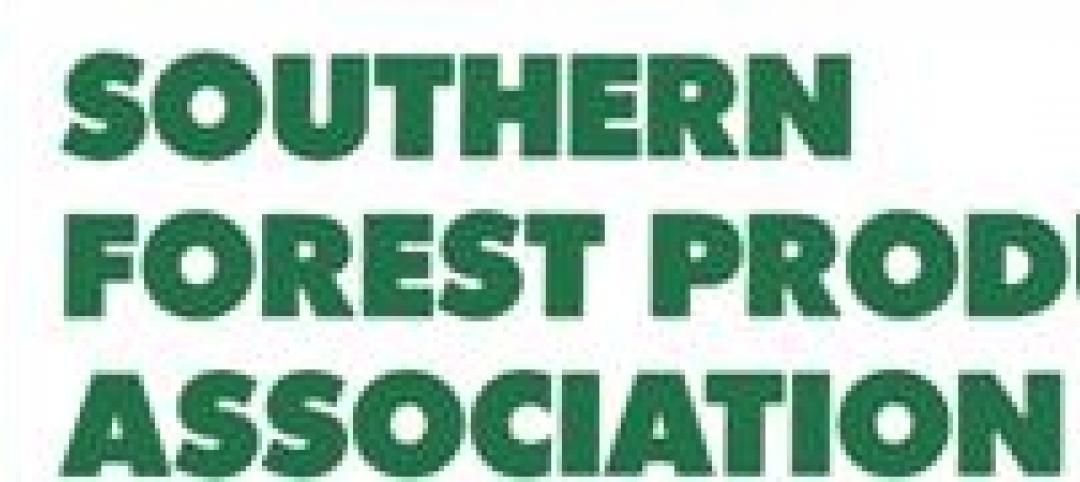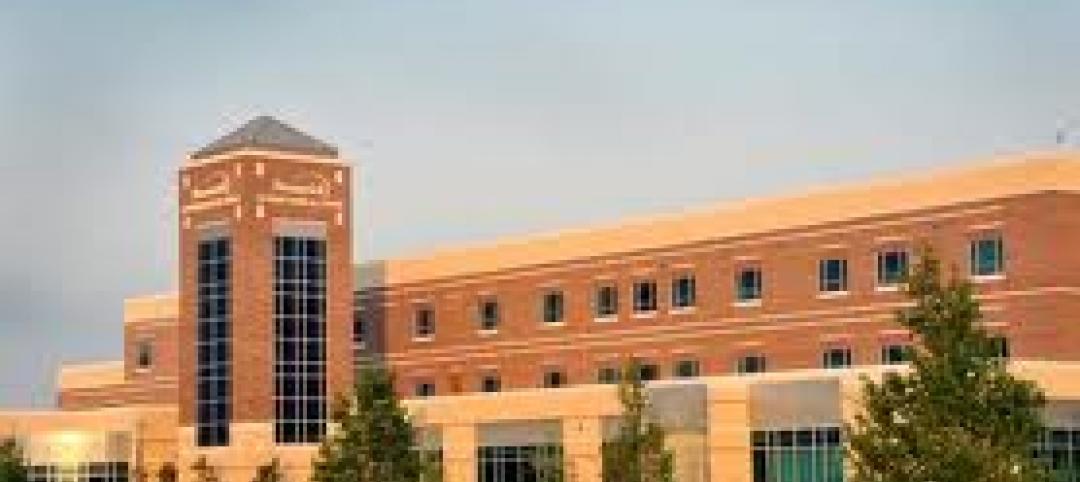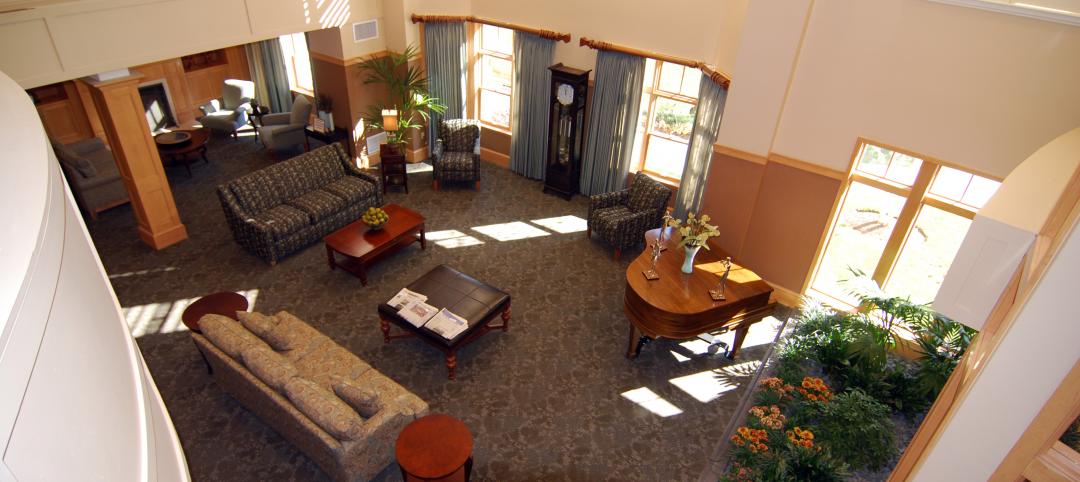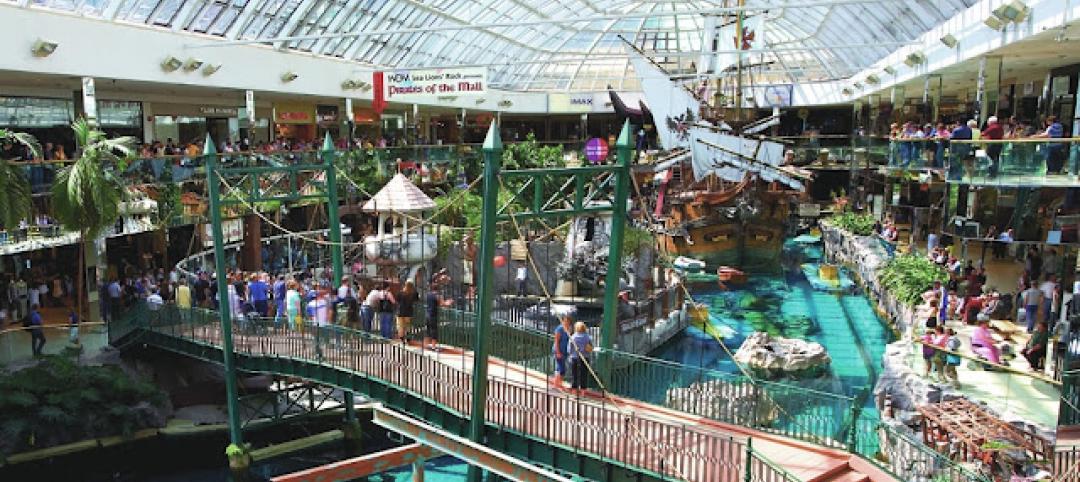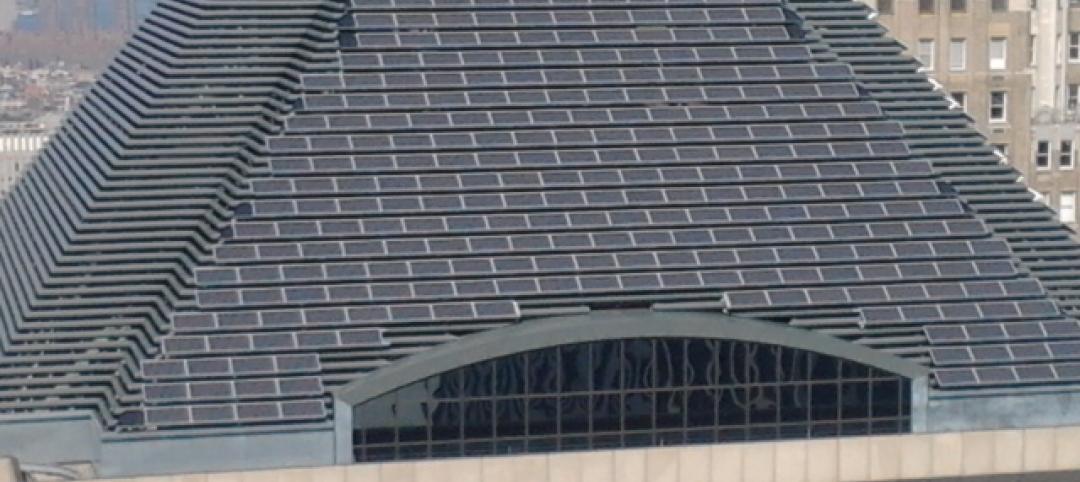Located just eight miles from downtown Dallas, the Trinity River Audubon Center seems a world away, sitting on 120 acres within the 6,000-acre Great Trinity Forest—the largest urban hardwood forest in the U.S. It seems only natural that the 22,000-sf facility would be designed to blend in with its wooded surroundings, but the architects’ decision to clad parts of the building in cypress was an unexpected choice.
The locally sourced cypress was selected “for its beautiful appearance, as well as its natural rot resistance and longevity,” says Gary DeVries, project manager for Brown Reynolds Watford Architects, the Dallas-based design firm that collaborated on the project with Antoine Predock Architect, Albuquerque, N.M.
The center has three wings—each expressing a different site element: forest, prairie, and water; the cypress siding was used on the exterior walls, fascia, and soffits of the center’s education or “forest” wing. An exhibit hall, gift shop, and administrative offices occupy the other two wings. Black anodized aluminum panels, concrete tilt-up, pre-weathered metal panels, and rough sawn boards were used to clad other sections of the building.
The three wings are tapered, angled, and cantilevered, sometimes to extremes (in one instance, a cantilevered canopy extends 48 feet) so that from the air the facility resembles a bird in flight. The building’s visual movement made it difficult to frame so the concrete subcontractor and the steel fabricator had to precisely coordinate their work. Because of those angles, the glazing contractor had to contend with creating a curtain wall with vertical framing installed on a cant ranging from 70 to 90 degrees, some of which varied between the 70 and 90 degrees on the same elevation. Moreover, curtain wall framing members ranged in height from 10 to 20 feet.
Ultimately, the team decided it was easier to custom fabricate the curtain wall on site. It took five months to fully enclose the building. Fortunately, the cypress cladding went up without a hitch, according to Jared Hicks, LEED AP, project manager for general contractor Sedalco, Fort Worth, Texas. “The building slopes a lot, there are large elevation changes, and the architects wanted boards running true horizontal in some places and running with the slope in other places,” says Hicks, “but installation was standard tongue and grove and the siding went up pretty easily.”
Hard to believe, but the building’s dramatically angular architecture wasn’t the most difficult problem the Building Team encountered. It was rain. And more rain. “In June the rain started coming and it didn’t stop, which is very unusual for us,” says Hicks. The team was only able to work six days that month and lost more than 130 days to weather over the course of the project. The Trinity River swelled to within 10 feet of finish floor and made the entrance to the job site impossible. Given the extremes of weather, the team was granted an extension and completed the $12.5 million facility one month before the center’s planned grand opening.
Visitors to the center have access to classrooms, indoor and outdoor museum exhibits, a discovery garden, and a below-grade aquarium designed to look like it’s part of the adjacent pond. Sedalco created more than two miles of nature trails, which included construction of bridges and boardwalks. They had to tread lightly, however, because they were under orders to disturb as little vegetation as possible. All equipment had to fit on the trails, which were only six feet at their widest. Steel erection and deck framing for the bridges and boardwalk wound up having to be completed without equipment.
The center has submitted for LEED Gold certification, with features such as the locally sourced cypress and other sustainable woods (including pecan millwork and wall paneling and bamboo floors), a partially vegetated roof, rainwater collection, and insulation made from old jeans contributing to the center’s sustainability. Perhaps the most significant green element is the building’s former brownfield site. Despite its location within a forest preserve, the land had been used for more than 15 years as an illegal dumping ground, and site remediation cleared away 1.5 million tons of trash. Native hardwood trees and prairie grasses now grow in place of trash piles. BD+C
Related Stories
| Feb 13, 2012
New medical city unveiled in Abu Dhabi
SOM’s design for the 838-bed, three-million-square foot complex creates a new standard for medical care in the region.
| Feb 10, 2012
Task force addresses questions regarding visually graded Southern Pine lumber
Answers address transition issues, how to obtain similar load-carrying capabilities, and why only some grades and sizes are affected at this time.
| Feb 10, 2012
Atlanta Housing Authority taps Johnson Controls to improve public housing efficiency
Energy-efficiency program to improve 13 senior residential care facilities and save nearly $18 million.
| Feb 10, 2012
Besculides joins New York Office of Perkins Eastman as associate principal
Besculides joins with more than 17 years’ experience in design, business development, and account management for the government, healthcare, and corporate practice areas with a particular focus on the financial and media sectors.
| Feb 10, 2012
Mortenson Construction research identifies healthcare industry and facility design trends
The 2012 Mortenson Construction Healthcare Industry Study includes insights and perspectives regarding government program concerns, the importance of lean operations, flexible facility design, project delivery trends, improving patient experience, and evidence-based design.
| Feb 10, 2012
LAX Central Utility Plant project tops out
Construction workers placed the final structural steel beam atop the Plant, which was designed with strict seismic criteria to help protect the facility and airport utilities during an earthquake.
| Feb 8, 2012
Nauset completes addition and renovation for Winchester senior living community
Theater, library, fitness center, and bistro enhance facility.
| Feb 8, 2012
Mega-malls expanding internationally
Historically, malls have always been the icons of America – the first mall ever was built in Minneapolis in 1956.
| Feb 8, 2012
World’s tallest solar PV-installation
The solar array is at the elevation of 737 feet, making the building the tallest in the world with a solar PV-installation on its roof.
| Feb 7, 2012
AIA introduces seven new contract documents to Documents-On-Demand service??
AIA Contract Documents are widely-used standard form contracts among the building industry to support construction and design projects.


